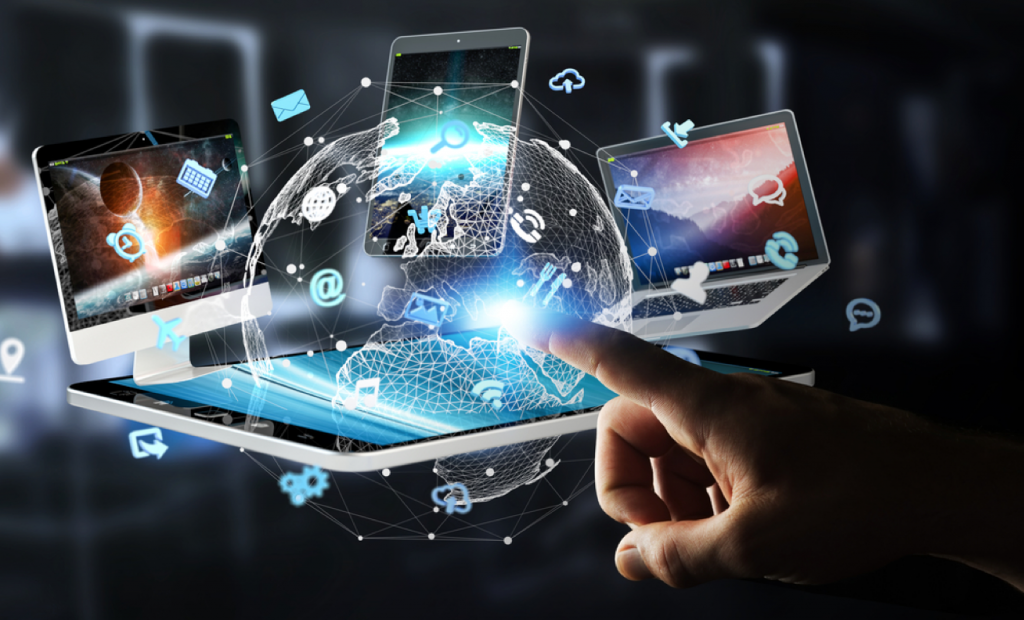As the internet becomes a larger and larger part of our lives in the 21st century, it’s important to think about internet-related security risks that pose a threat to our privacy. What exactly does the future hold for internet privacy, and how will new technologies make our web browsing and data sharing safer? Let’s peek into our crystal ball and see what the future holds for cybersecurity.
Better Encryption
Encryption is when computer data is “scrambled” so it can’t be read by hackers. When you’re buying something online, for example, your credit card information is encrypted when your computer sends it across the internet to a website server (so long as you’re on an encrypted website). Currently, the most advanced encryption algorithms are too complex to be decrypted by even the best hackers.
Unfortunately, not all websites and servers use the most advanced encryption algorithms. But as the 21st century progresses, expect high-end encryption to become more commonplace all across the world wide web.
There should be major advances in encryption technology, too. With developments in supercomputing and quantum computing, it’s possible that we could get even larger and more complex encryption algorithms that are even tougher to crack.
Smart Homes and Smart Cities
Have you heard about the Fourth Industrial Revolution? This is supposed to be a major period of industrial development that’s going to result in new technology that will fundamentally change our society.
The Internet of Things is bound to be one of the most important aspects of the Fourth Industrial Revolution. The Internet of Things refers to how electronic devices in our homes and cities will be interconnected through the internet and able to share information with each other.
Smart homes are already coming into being with virtual assistants. In the future, virtual assistants will be able to use all the devices in your home to track your habits. They’ll know when to set your alarm in the morning, when to heat up the shower for you, and when to prepare your morning coffee.
The technology looks like it’s going to expand into cities, as well. Cities are going to be able to use the Internet of Things to monitor traffic and crime.
Better Security Programs
If you’re concerned about ransomware or IP address hacking, rest assured that PC security is going to keep getting better.
Cybersecurity software of the future is going to utilize AI to defend against all types of hacking attempts. What’s great about AI defense mechanisms is that AI will be able to use problem-solving techniques to figure out what kind of hacking attempt is taking place, where the vulnerabilities are in the system, and how to best defend your computer.
5G
5G cellular networks are just starting to launch in 2019. This is the 5th generation of cellular network technology, and it’s expected to provide your cell phone service with nearly double the speed and capacity that the 4G networks have. On your cell phones and tablets, you’ll be able to stream videos faster and you’ll enjoy a faster transfer of large files.
No More Passwords
Passwords are soon to be a thing of the past (maybe not in the immediate future, but perhaps in the near future). Nowadays there are easier and more effective ways to determine someone’s identity, like facial recognition and fingerprint scanning. If more computers, computer displays, and websites begin to incorporate this technology, you may no longer have to remember a countless number of passwords for all the accounts and devices you use.
Faster VPNs
“VPN” stands for “virtual private network.” A virtual private network is really the only way you can truly keep your web browsing activities private. Even when you’re using “private browsing” features on your computer, anyone on the internet can see which websites your computer is communicating with. A VPN shields your privacy by acting as a confidential middleman between your computer and the websites you visit.
Browsing the web through a VPN is still a little bit slower than browsing the web without one. But as more and more internet users begin to use VPNs, expect there to be some investment in the technology to make it faster.
For better (or for worse), all of these advancements in cybersecurity and data sharing are bound to change our digital-based world forever.

